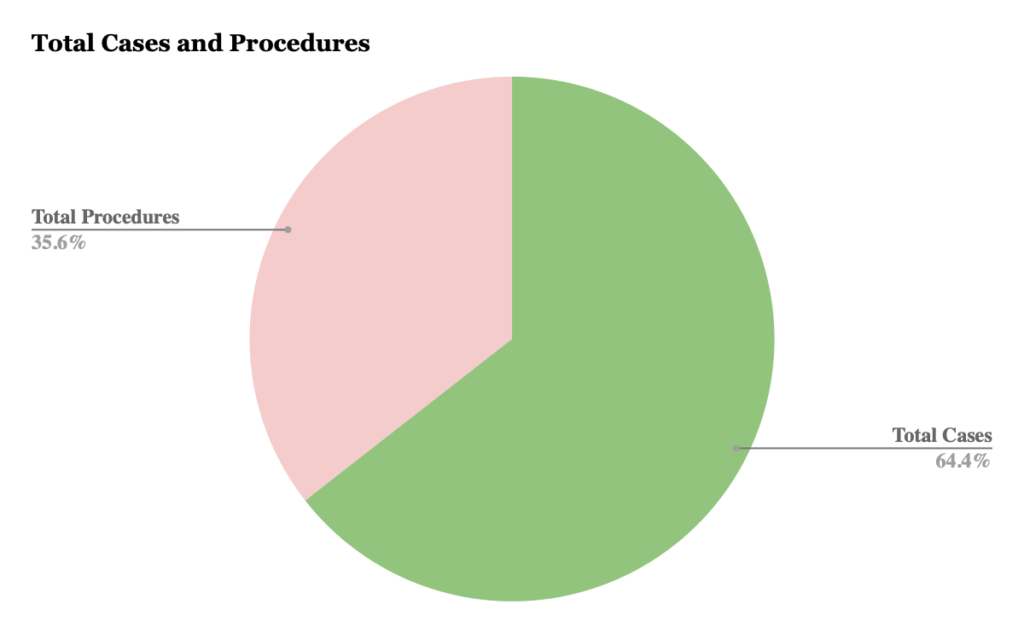5-Year Procedure Trends
Hello all!
After an unprecedented 5-year hiatus, we have our procedure trends! Lo and behold, an overview of Honor Council procedures from the Fall 2018–Spring 2019 to Fall 2022–Spring 2023 academic years.
Given Honor Council has received a decreasing amount of cases, we have united the trends into a 5-year analysis to ensure confidentiality and a clearer understanding of the attended procedures.
Message from Current Co-Chairs (2023-2024):
Since the 2017-18 academic year, Honor Council has not released trial trends; although we are uncertain of why this did not occur, it may be due to our decreased case load, potentially allowing for trials to be identified with these statistics. When there were 20 or more cases per year, sharing these trends did not allow one to narrow down which characteristics correspond to which trial, but with fewer than 10 cases per year, this is no longer always the case. In order to release these trends and also not compromise the confidentiality of our cases, we have chosen to deviate from previous Councils and publish combined trial trends for the past five years.
Through our interactions with students, faculty, and staff during our time on Honor Council, we believe that there are several reasons that our case load has decreased so significantly in the last five years. One primary factor is that the COVID-19 pandemic interrupted classes, leaving students with fewer assignments, and additionally could have interrupted Honor Council’s ability to take on a standard case load. Another factor is, in Spring 2021, a plenary resolution passed that no longer required professors to report students to Honor Council for all potential Code violations; through our Fall 2023 faculty survey, it became apparent that many cases of academic dishonesty have been handled solely by professors. Lastly, we believe that the case load may have decreased due to a lack of confidence in Honor Council and our procedures to achieve our stated goals of education, accountability, and restoration. Academic trials gained a reputation amongst faculty for taking too long and not holding students accountable, while with students, Honor Council was seen as an intimidating body. There have been very few social trials in the last five years, and based on the Fall 2023 student survey, this can be attributed to a lack of trust in Honor Council to handle these types of harms appropriately. This last point is the only one that can extend as far back as 2019 when we first observed this decrease. Overall, we are optimistic that our new procedures will regain trust in Honor Council’s ability to restore trust, concern, and respect within our community and be perceived as a resource to students, not a threat.
From Fall 2019 to Spring 2023, a total of 29 cases have been brought to Honor Council, 16 of those which were sent to trial. You will find below 3 graphs evaluating certain statistics of these past 5 academic years: Total Percentages of Cases and Completed Procedures, Percentages of Academic Departments by Completed Procedures, and the Years of Confronted Parties.



If you have any questions, feel free to contact the current year’s Honor Council Librarian.
Peace,
Rosario I. Lozada-Franco
Honor Council 2023-2024 Librarian